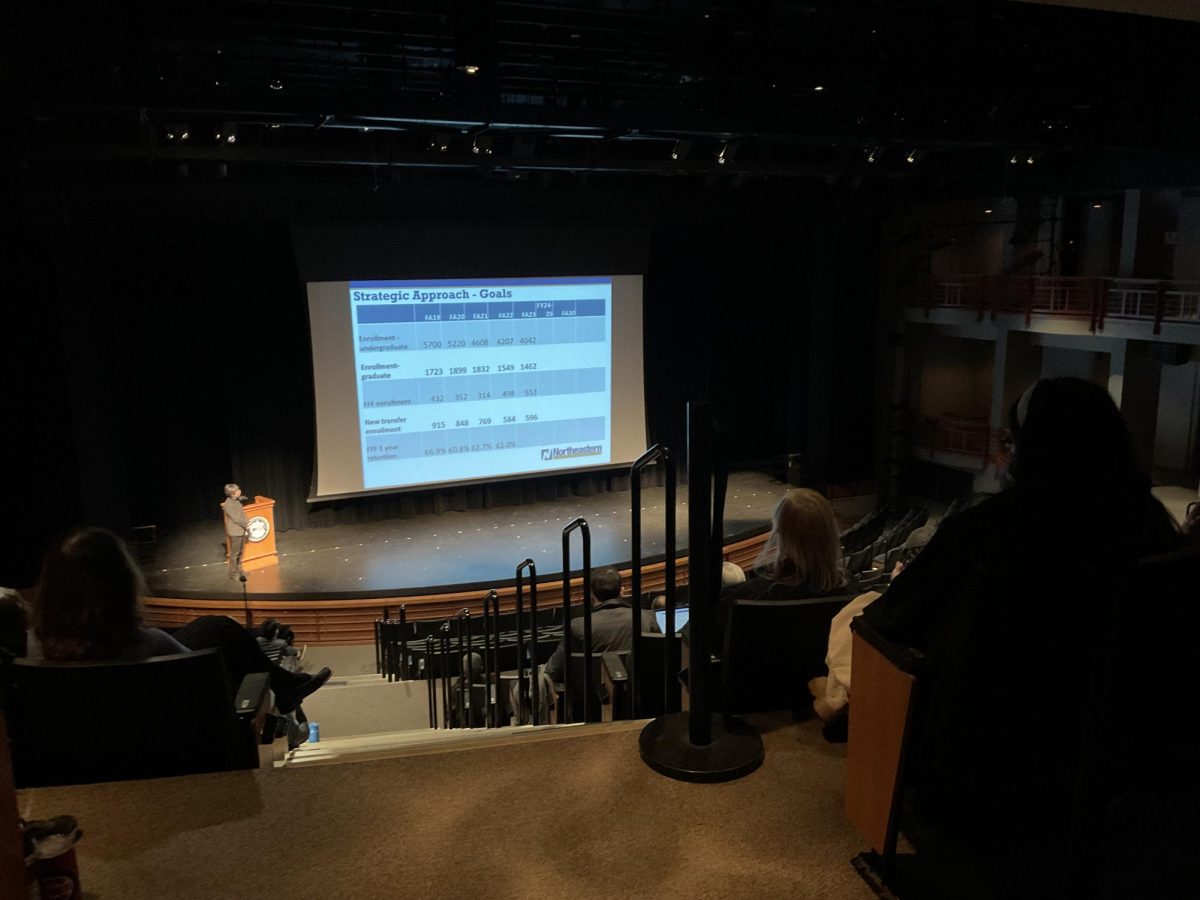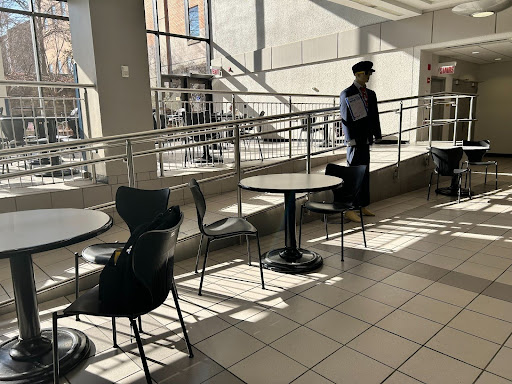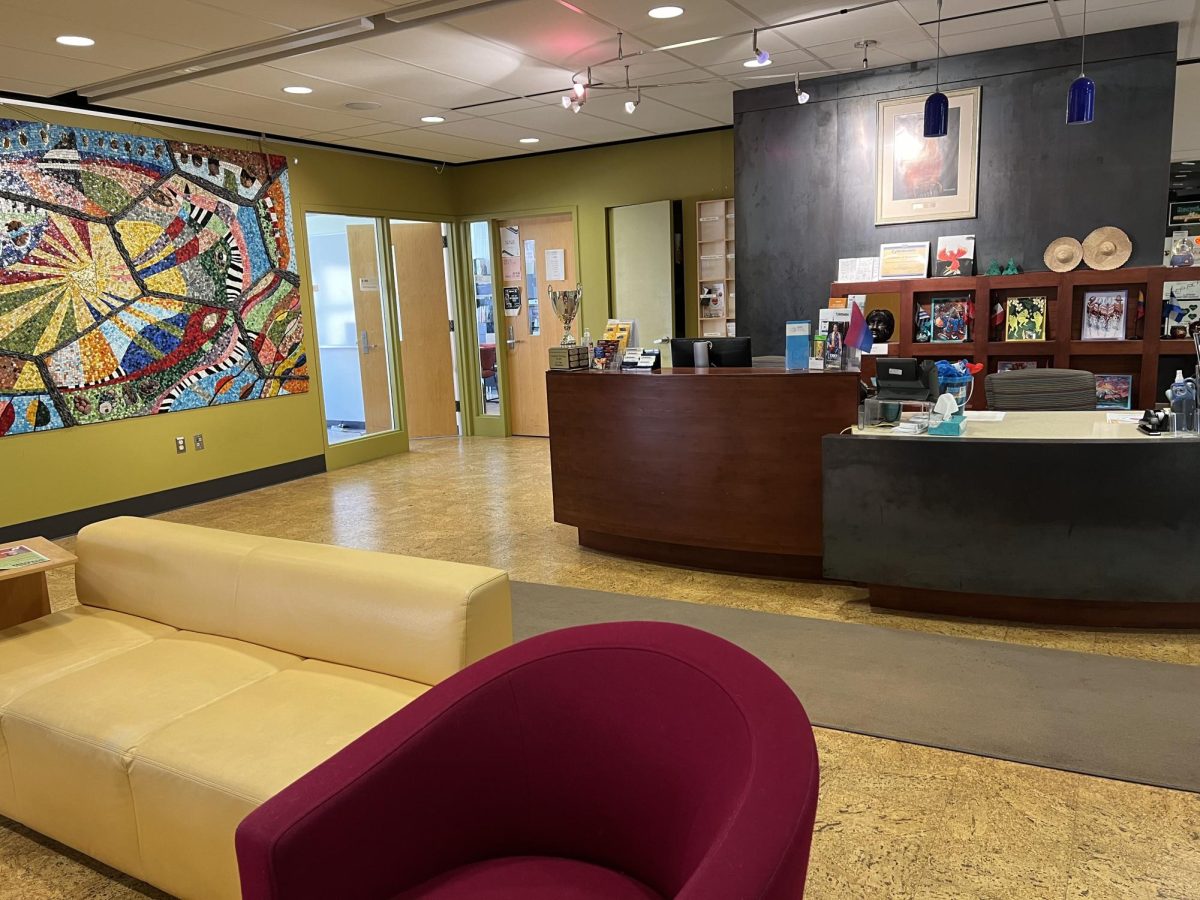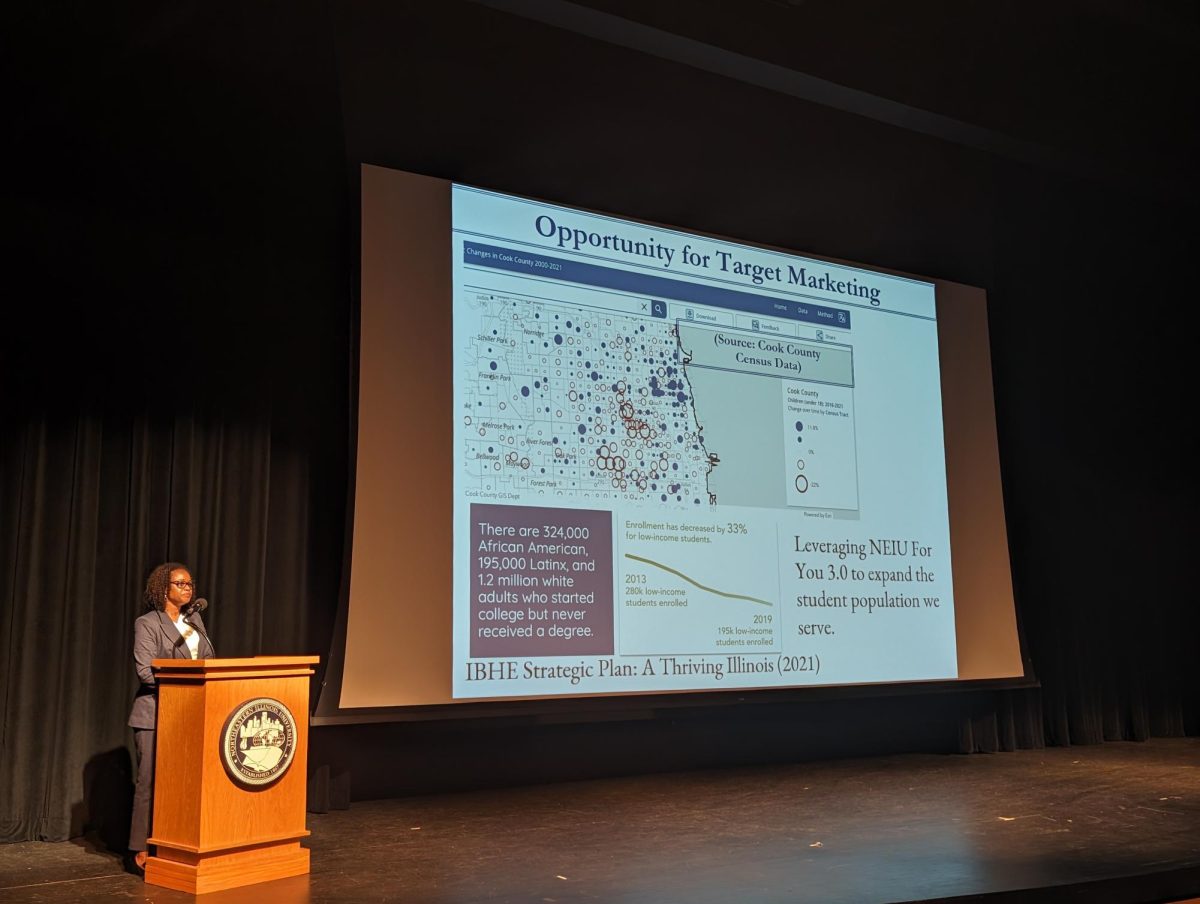Dr. Ellen (SK) Wang is the first of four candidates to visit NEIU and engage with the university community. She currently serves as the Vice President for Academic Affairs and Provost at Hostos Community College, a part of City University of New York (CUNY). In a town hall meeting on NEIU’s main campus and a meeting with students, faculty, and staff at El Centro, Dr. Wang shared her vision for NEIU and outlined how she would take action in the first 100 days of office.
Prior to her current role, Dr. Wang had been Vice President, Academic and Student Affairs at Harold Washington College from 2020 to 2022, Dean for Research at Queensborough Community College (affiliated with CUNY) from 2018 to 2020, Associate Dean of the School of Interdisciplinary Studies and Education and a Professor at New York Institute of Technology (NYIT) from 2014-2018, among other administrative experiences as Chair and Principle Investigator dating back to 2010.
During Dr. Wang’s town hall presentation, she emphasized customized student support and collaboration within the university’s different departments as well as with the wider community.
“I heard a lot of examples, like our students call someone or somebody calls someone but never got a response email or phone call,” she said, immediately following up with a solution. “We need to make sure that our students, when they call us, we respond to their call. When they email us, we email them back. When they’re on our campus, if they have any challenges, someone’s always there, to be available, to help them.”
To get to this phase, Dr. Wang would first implement professional development for faculty. Citing NEIU as the most diverse school in the midwest, she said, “We want to ensure that our faculty understand all of those culturally responsive teaching methods so they know how to work with and support different student populations.”
Another form of support would be offering students a strong start. Dr. Wang referred to her current work reforming a first experiences program, which was designed to help students and families transition smoothly from high school to universities. For example, the program allowed students to work with staff during the summer and “Provide them authentic, strong student experiences, and that effect is long term,” Dr. Wang said.
She addressed more concerns in multiple Q&A sessions. Responses are condensed below.
On communication
Like the candidates to follow, Dr. Wang addressed communication as a major area for improvement. She sees communication as a structure and system issue, having encountered this problem at Hostos too. After talking to a student who was crying in her office, Dr. Wang learned that the student was being kicked between offices because they couldn’t resolve her issue. Dr. Wang said she then took the student to the proper office, and the issue was resolved.
“But I just feel like, why do I have to go to you so you can help your students? We should always help our students, regardless of who is the person who talked to you, right?” Dr. Wang said.
She believes that to improve communication, the president and administration needs to model that kind of interaction. “When the people around you – staff, faculty – notice the college president, provost, cabinet members all treating people with care, really listening to their needs, I think it will trickle down.” She continued, “then everybody else is going to try to model this practice and support the students the best way they can.”
On stepping up at satellite campuses
Multiple faculty members, especially those working at satellite campuses, were concerned with the long process they have to undergo in order to get support from the president, and would like to see action taken regarding this.
In response, Dr. Wang cited how she approached NYIT’s campus, which had the same satellite structure as NEIU, and would be happy to do the same here. “We have three different campuses, but we offer our programs on all three campuses. So at the time I decided that I would really want to be able to connect with all the faculty, students, and staff on every campus. So I choose one day to work from the Westbury campus.”
She continued, “That really helps because you get to see, even though people can email me and call me, it makes a huge difference when you can see the person in front of you, you can really approach them and then share your concern and talk about your ideas.”
Dr. Wang added that she would consider having the leadership team rotate and work on different campuses.
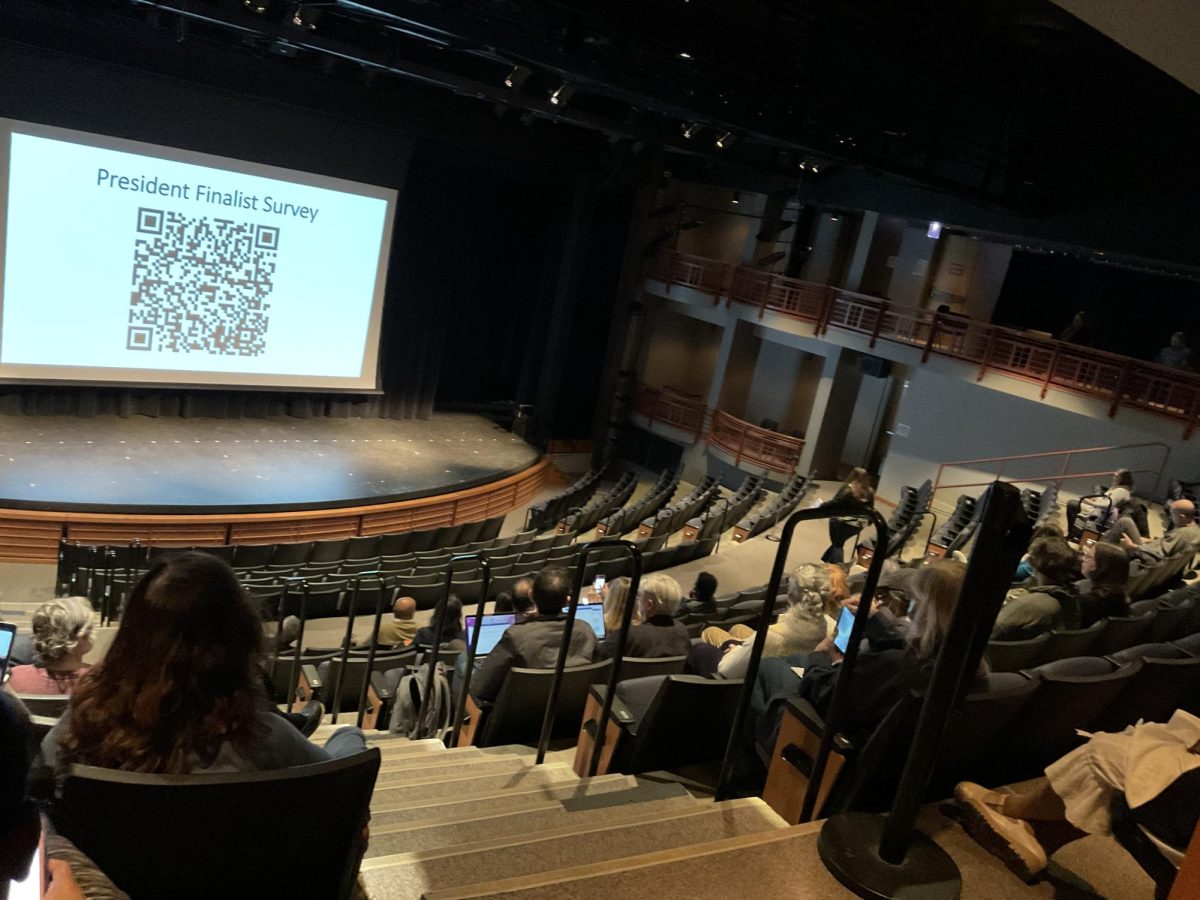
On stance regarding sensitive issues
One attendee commented, “Our director who’s leaving has received threatening emails from the community, from faculty,” referring to recent worldwide events. “So our current president has taken a position of neutrality in that because she doesn’t want to offend any group but in taking a position of neutrality she’s offended both groups because neutrality is unacceptable when there’s war.” The attendee asked how the new president would address the freedom to speak on such issues.
Similarly, concerns regarding police presence in schools, expanding the LGBTQIA community, and supporting undocumented students were also raised.
Dr. Wang empathized with each community, saying that she wants to support them in the best way she can, citing her experience as an immigrant herself. “We all have different backgrounds, so it’s really important to go through those kinds of debates.”
And yet, she makes it clear that one’s freedom of speech cannot compromise others’ safety. “Freedom of speech, freedom of expression has its boundary. You cannot break the law. You cannot harass people. You cannot threaten people. You cannot invade people’s privacy.”
Dr. Wang placed responsibility on the university to set those boundaries. “The university has to define the time, the space, the manner.” This is something she intends to do in her first 100 days. “If you set up the tone clear, then we can think about the practices you are talking about.”
“I am very impressed, and also through my research, I learned that diversity at the NEIU is not just being acknowledged but also being celebrated as a strength,” Dr. Wang said during her presentation, “So as an immigrant that’s very important to me. So I’m really proud and impressed and very proud of NEIU’s culture. And I feel like my experience, my expertise, and my passion to education, and my personality match with the NEIU’s leadership priorities. So that’s why I decided to apply.”



